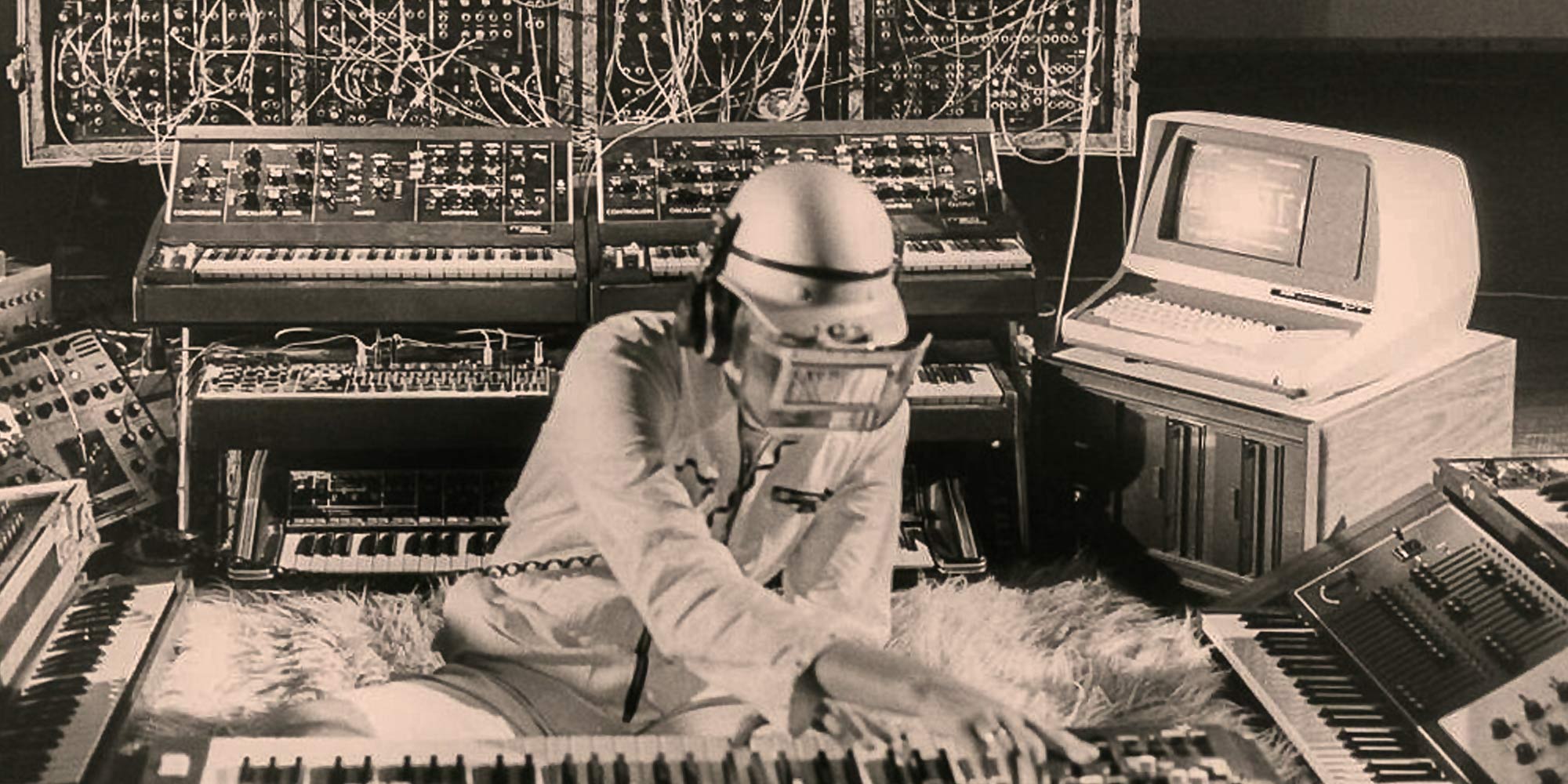After more than 40 years of Ars Electronica, it’s no easy undertaking to tell a story about the platform for art, technology and society – a very good overview of this has already been written by Andreas J. Hirsch in his book “Creating the Future”. Nevertheless, we’d like to present a few impressions from our Ars Electronica archive in this playlist:
-
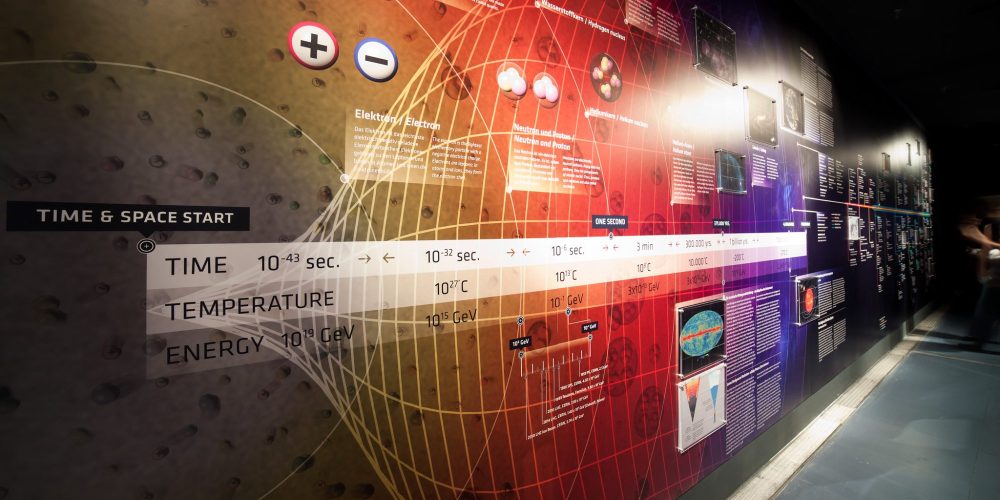
Throwback: ORIGIN – Investigating the Big Bang
The exhibition took a closer look at the European particle physics laboratory CERN, covering its history, daily activities and the ambitious goals of the global research project.
-
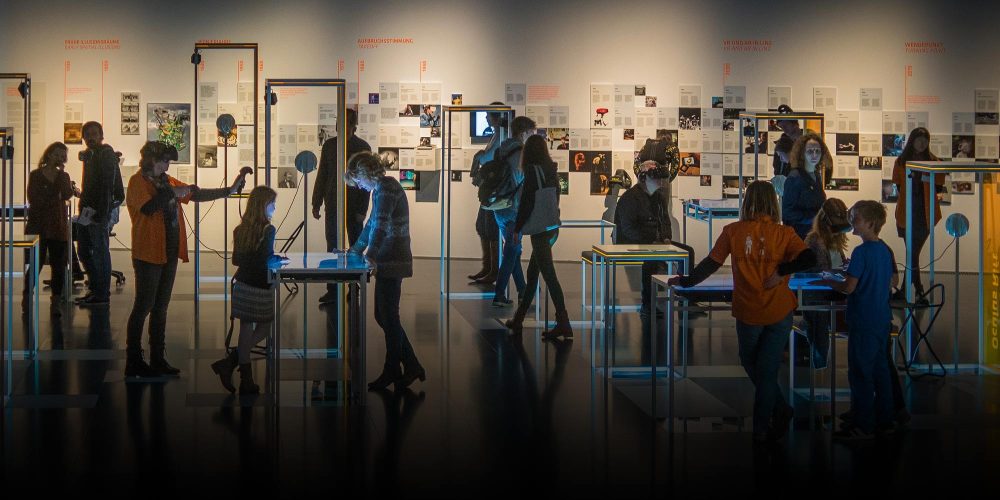
Throwback: The VRLab
At the Ars Electronica Center’s VRLab, it was possible to immerse yourself in virtual worlds and superimpose data on our reality.
-
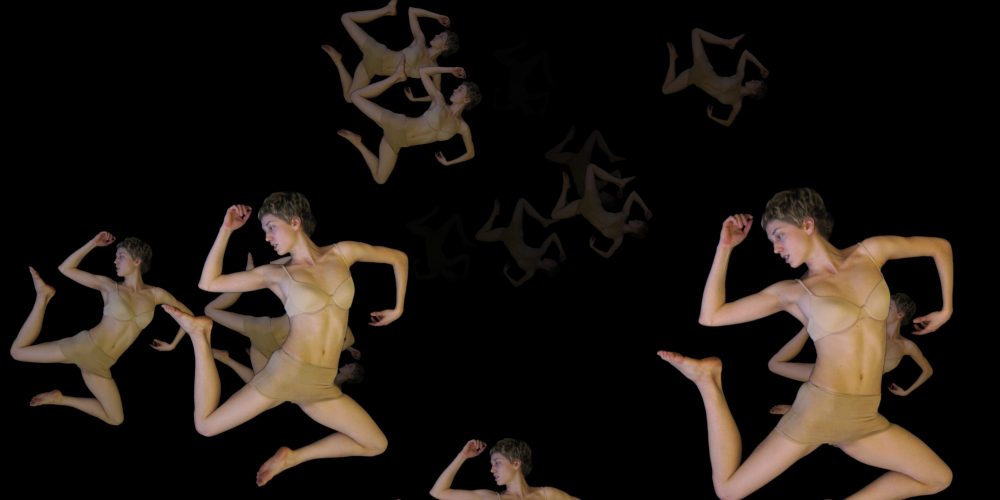
Throwback: Le Sacre du Printemps
In 2006, the Ars Electronica Futurelab collaborated with media artist Klaus Obermaier on a unique production of Igor Stravinsky’s Le Sacre du Printemps.
-
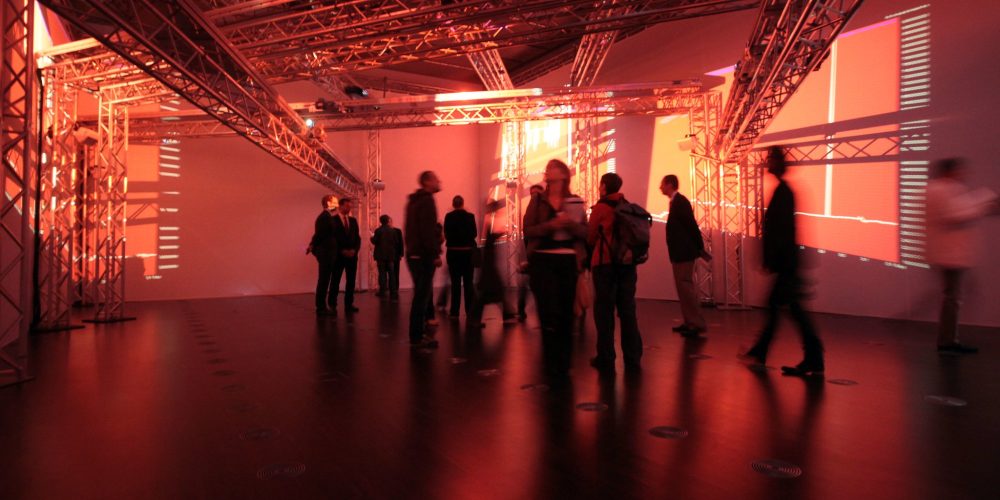
Throwback: Ready to pull the lifeline?
From September 2 to 11, 2010, the Ars Electronica Festival “REPAIR – Ready to pull the lifeline” took place on the grounds of the former tobacco factory in Linz
-
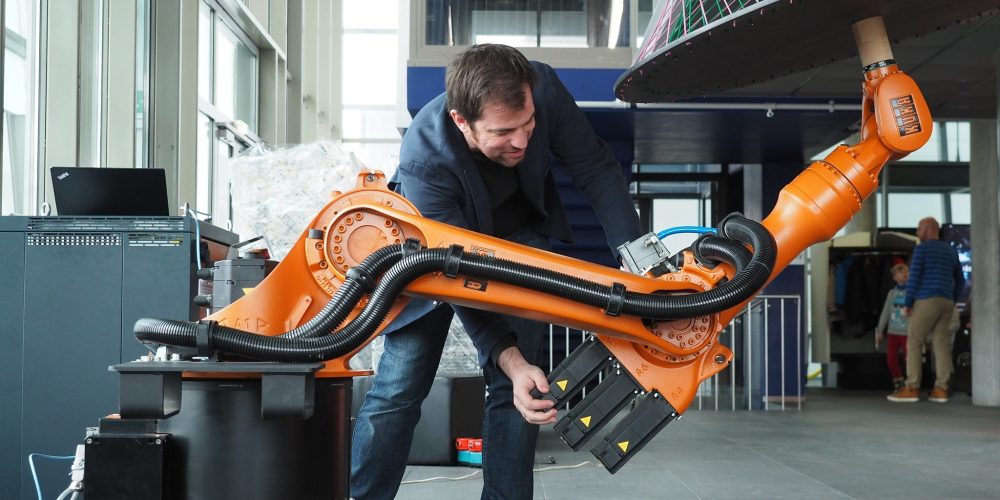
Throwback: Creative Robotics
The exhibition “Creative Robotics” traced how industrial robots, outside their original use, became a medium of artistic and creative expression and a catalyst for the implementation of innovative ideas.
-
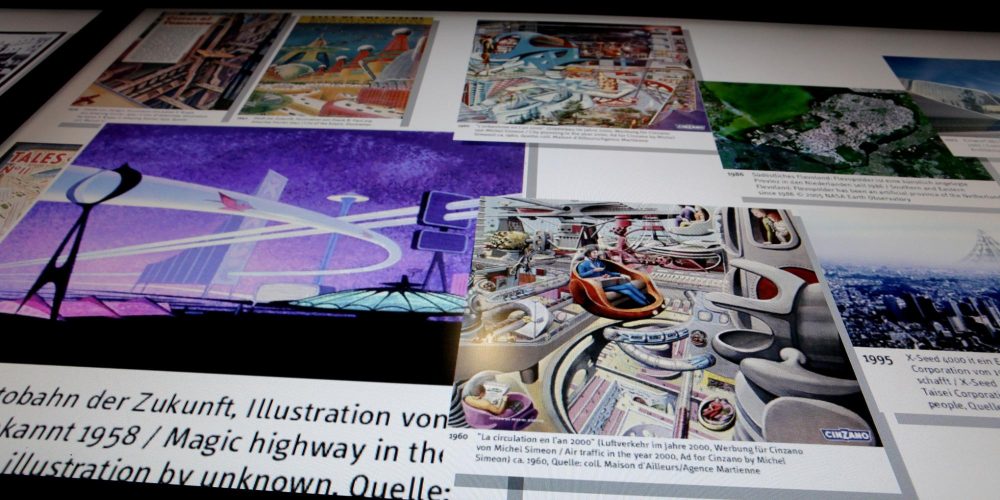
Throwback: The World in 100 Years
The exhibition “The World in 100 Years” paid tribute to great thinkers and activists who were ahead of their time and worked for a vision of the future.
-
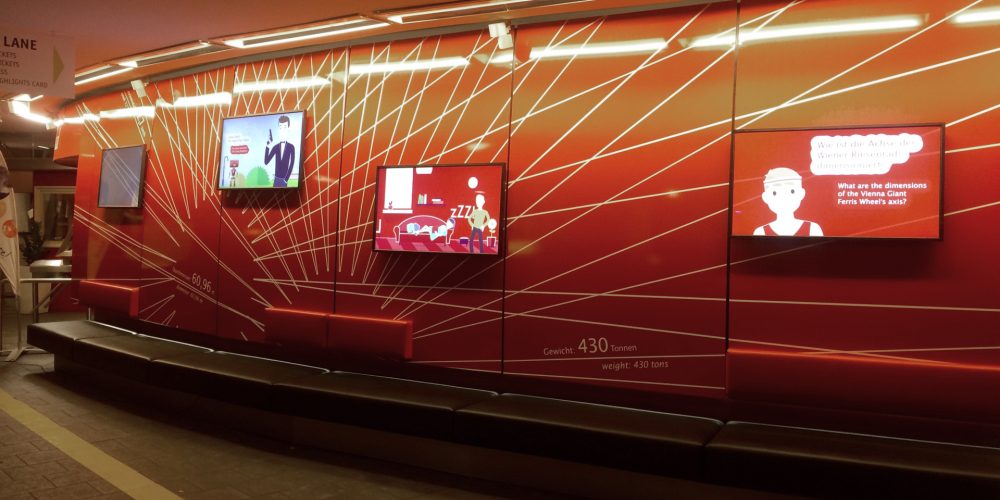
Throwback: The Vienna Giant Ferris
In 2017, Ars Electronica Solutions was engaged by ARTDELUXE Kunst- und Kulturmanagement to stage the new foyer at Vienna’s Giant Ferris Wheel.
-
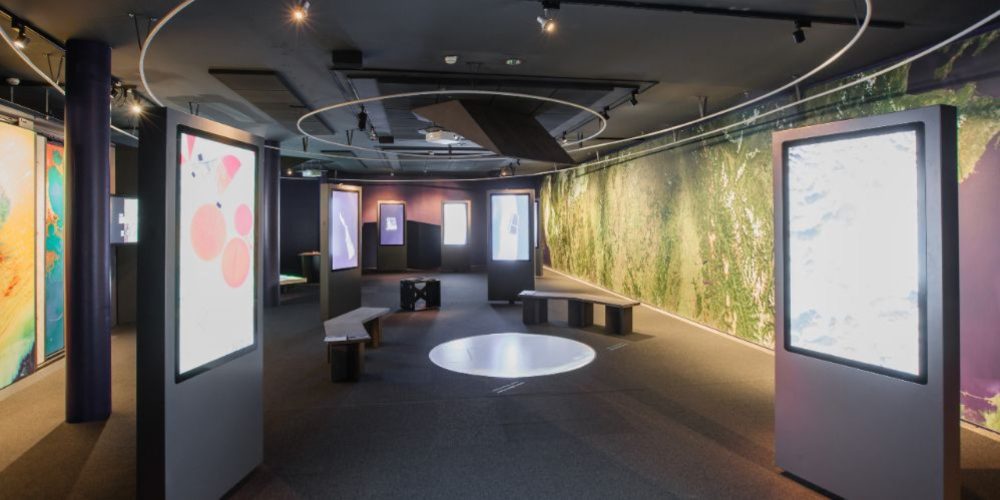
Throwback: Spaceship Earth
The exhibition “Spaceship Earth” dealt with the question of what we can learn about our planet by observing it.
-
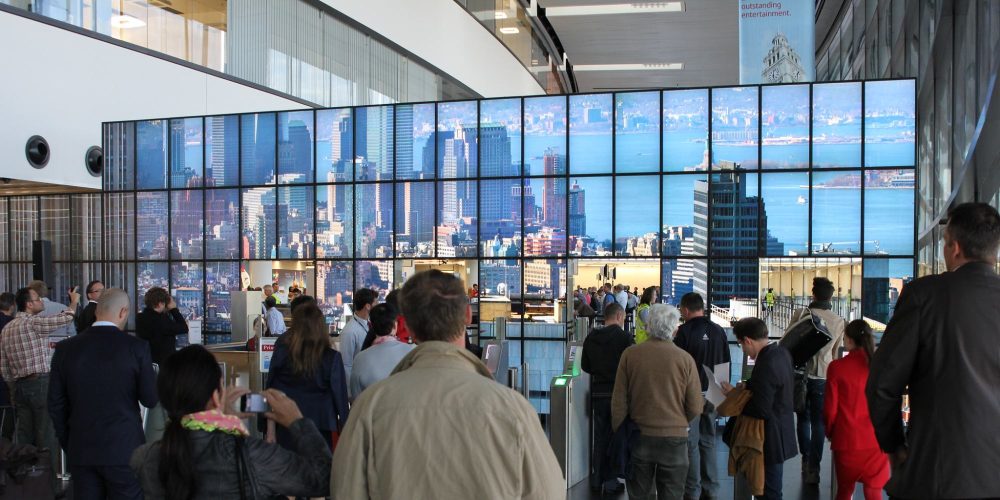
Throwback: From Austria to the World
“From Austria to the World” – under this motto, the Austrian Star Alliance Terminal Check-in 3 at Vienna Airport featured five unique gigapixel images of New York City in 2013.
-

Throwback: Innocence
Innocence was a 2013 work by the Ars Electronica Futurelab dedicated to Linz’s childhood memories of the Passage shopping center.
-
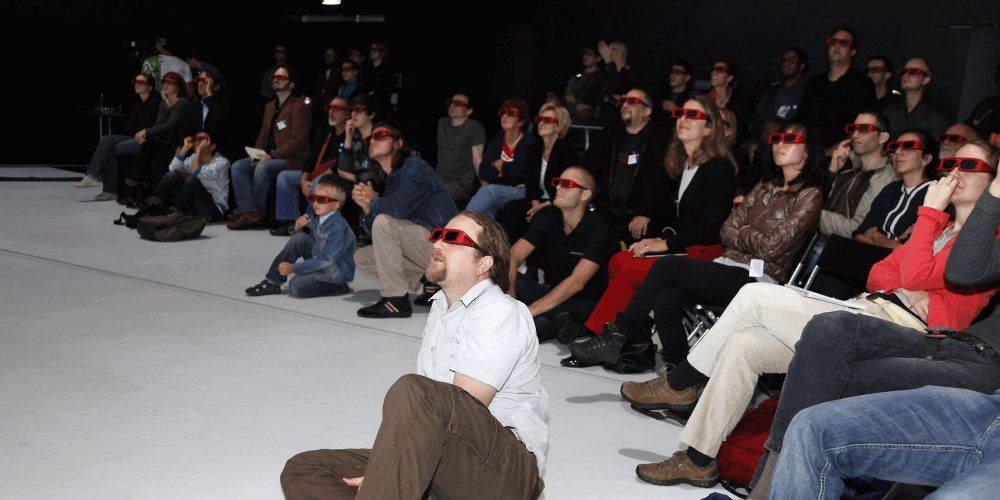
Throwback: The birth of the Deep Space
Deep Space EVOLUTION marks the start of Ars Electronica’s next chapter when it comes to immersive visual worlds. But how did the story of the giant projection room in the Ars Electronica Center begin?
-

Throwback: The Teleklettergarten
An oversized computer keyboard as a climbing wall on the facade of the Linz Art University. That was the teleclimbing garden.
-
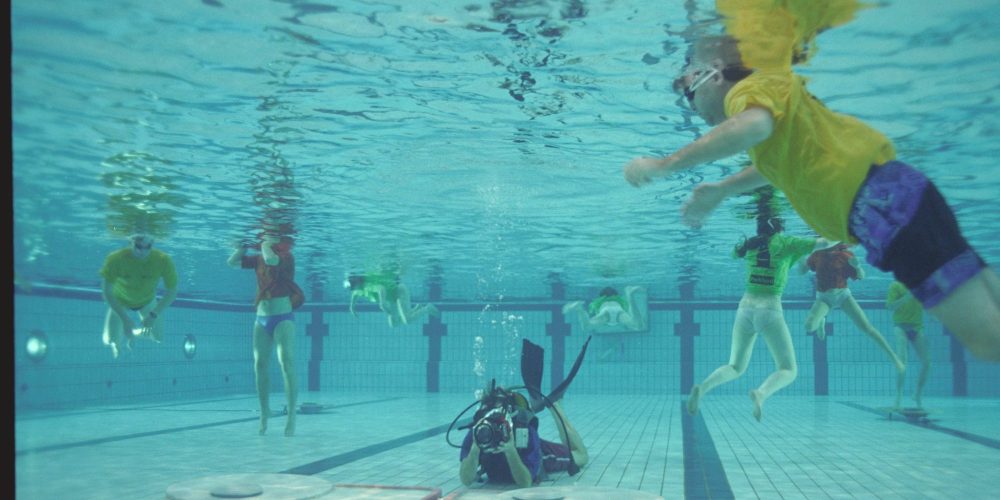
Throwback: Liquid Cities
During the Ars Electronica Festival in 1996, the indoor pool of the Parkbad Linz transformed into a fluid interactive 3D space.
-
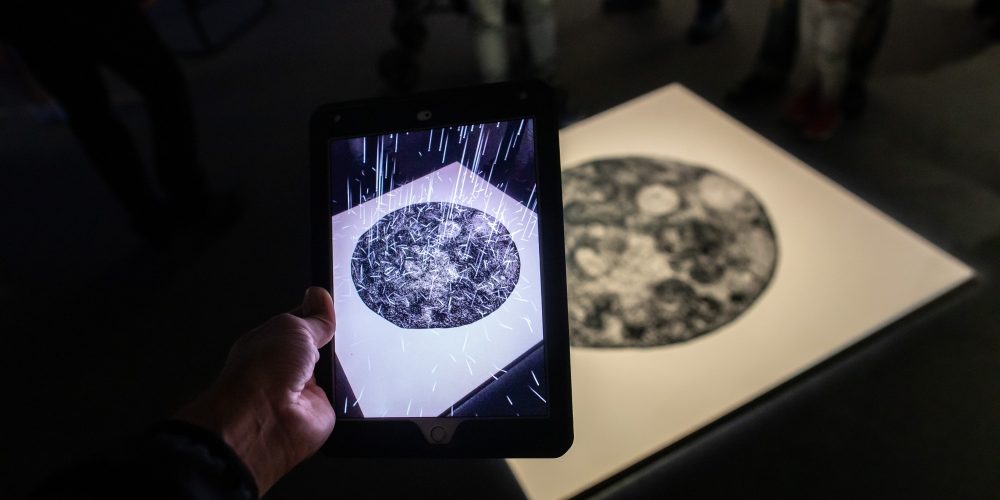
Throwback: Mirages & miracles
The exhibition Mirages & miracles at the Ars Electronica Center staged augmented reality in a virtuoso and imaginative way.
-

Throwback: GeoPulse
GeoPulse opened up an interactive experience space for visitors of the Ars Electronica Center that compiled multi-layered data about our world and made it possible to experience it in a playful way.
-
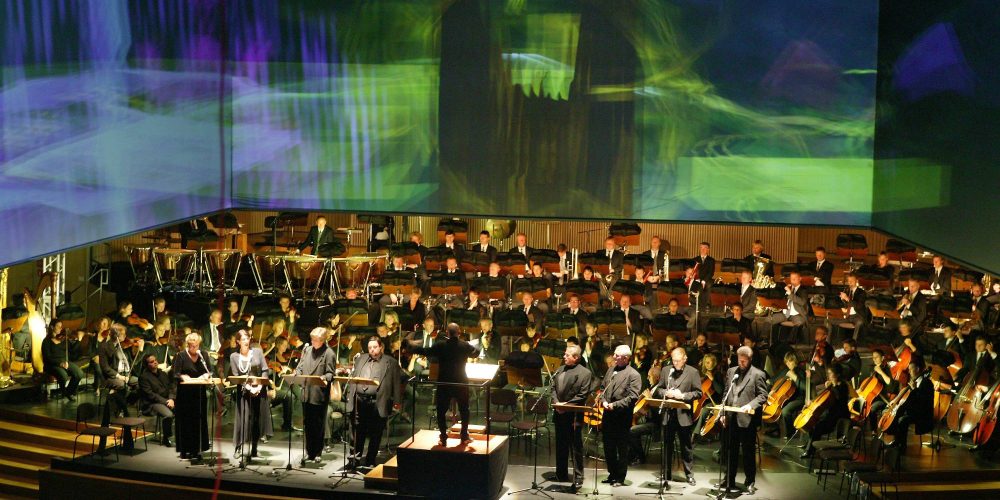
Throwback: Das Rheingold
In 2004, the Ars Electronica Futurelab designed an interactive computer-controlled visualization for the opera “Das Rheingold” by Richard Wagner.
-
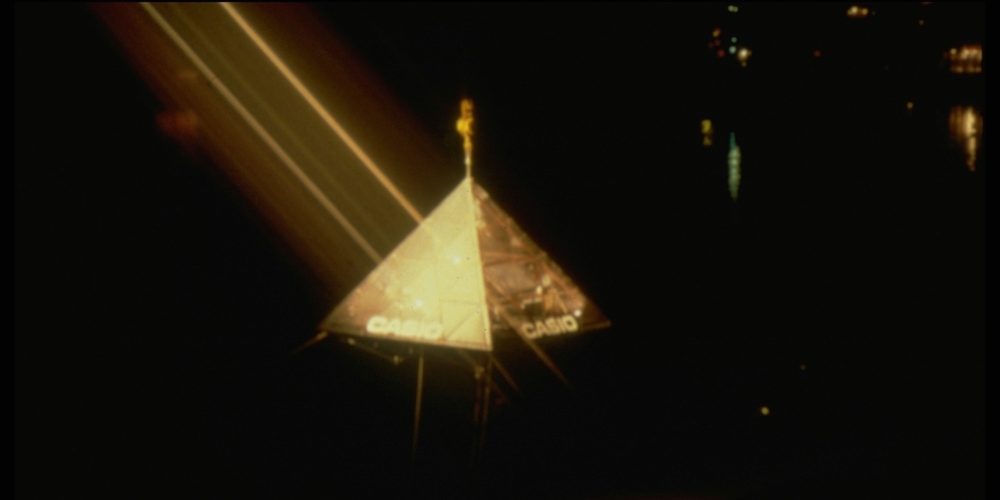
Throwback: UFOs over Linz
In a glass pyramid, 30 meters above the Danube, Isao Tomita enchanted the visitors of the Klangwolke 1984.
-

Throwback: The pioneer of the synthesizer
Robert Moog is considered a pioneer of the synthesizer. In the 80s, the American inventor honored us twice in Linz.
-
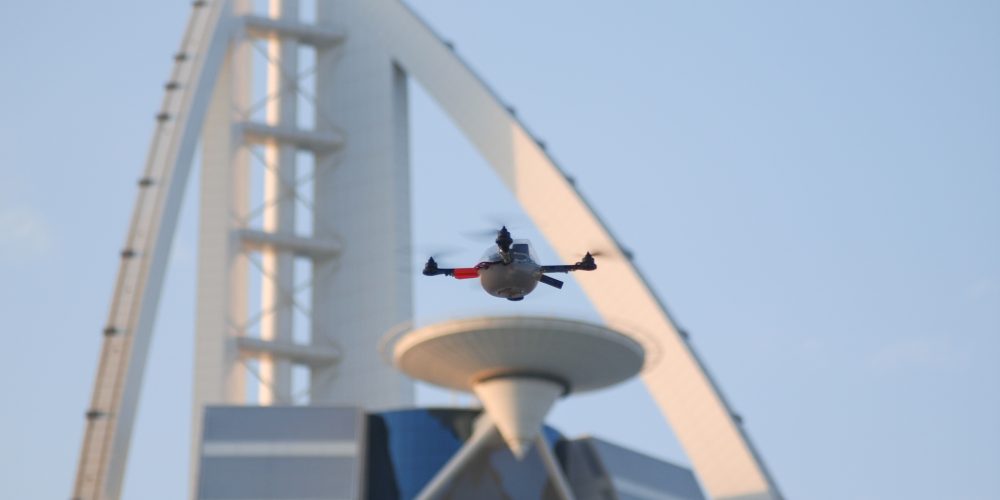
Throwback: Spaxels
Spaxels are autonomous drones that can be moved freely in space to form dynamic, three-dimensional figures in the night sky.
-
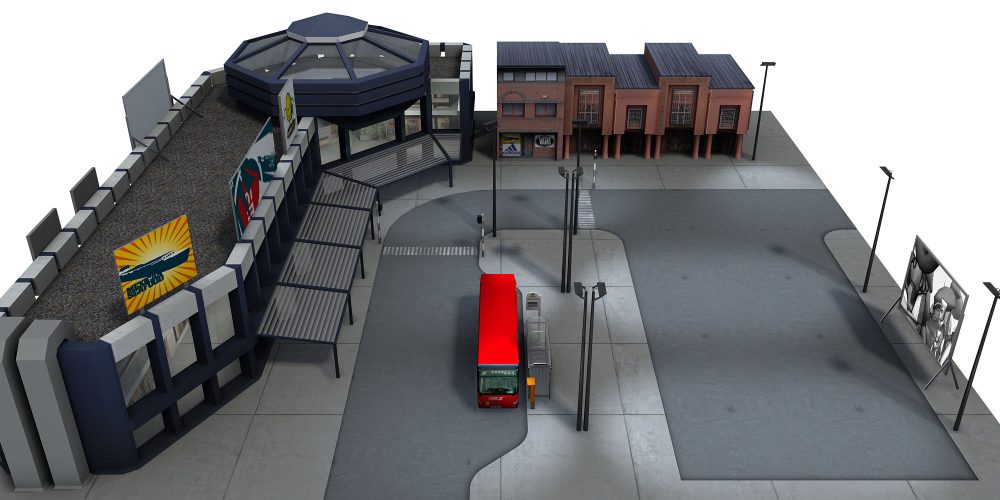
Throwback: City Puzzle
City Puzzle by the Ars Electronica Futurelab was an interactive simulation environment that let you create virtual urban landscapes.
-
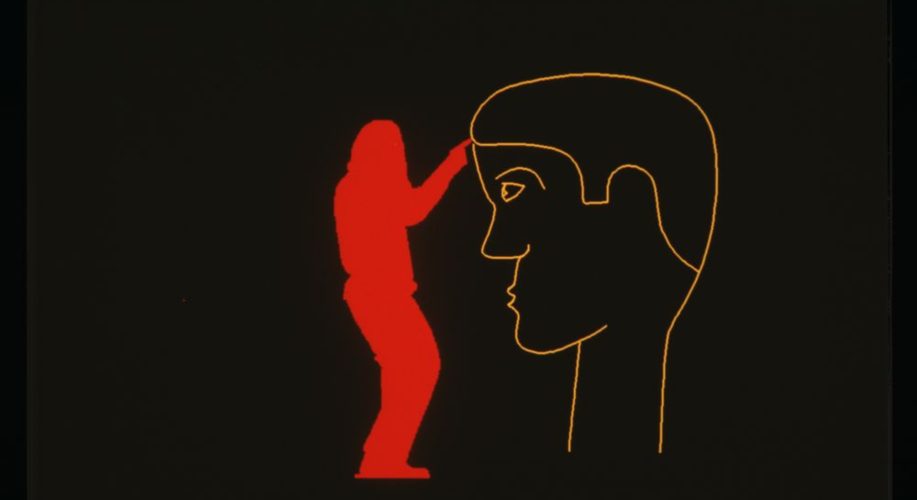
Throwback: Videoplace
In 1990 the time was ripe to take the next evolutionary step in the development of Prix Ars Electronica by adding a new category for “Interactive Art”.
-
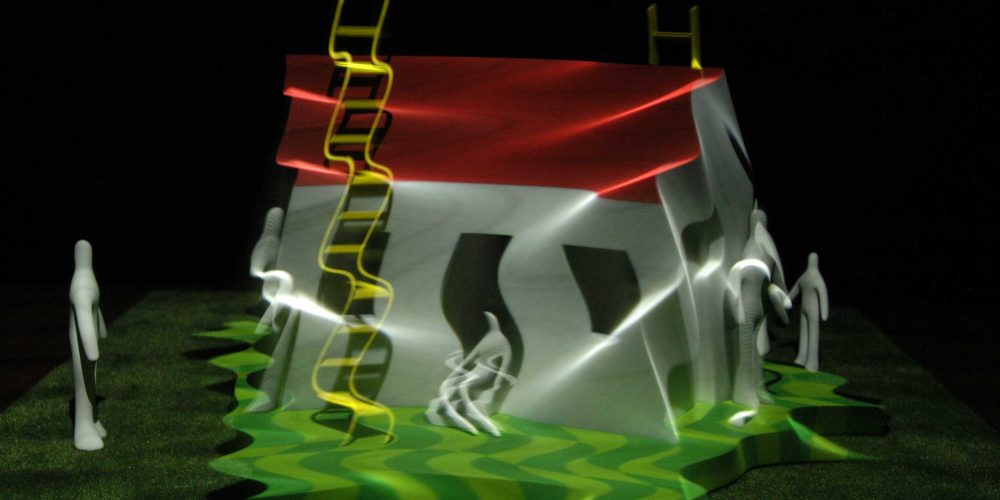
Throwback: Morphovision
The Morphovision image processing system worked with real objects and opened up new possibilities for plastic design.
-
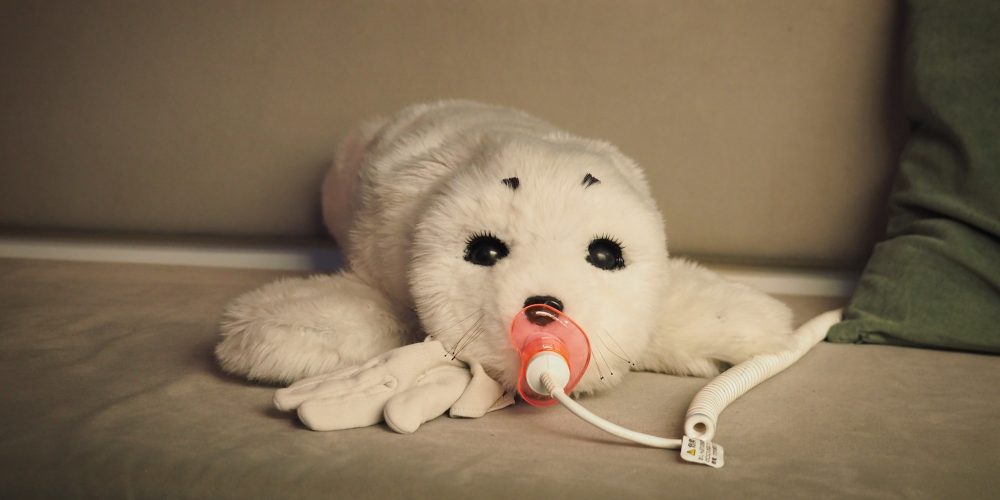
Throwback: Paro the robot seal
Paro, an assistant robot with the appearance of a seal, was a visitor magnet at the Ars Electronica Center for years.
-
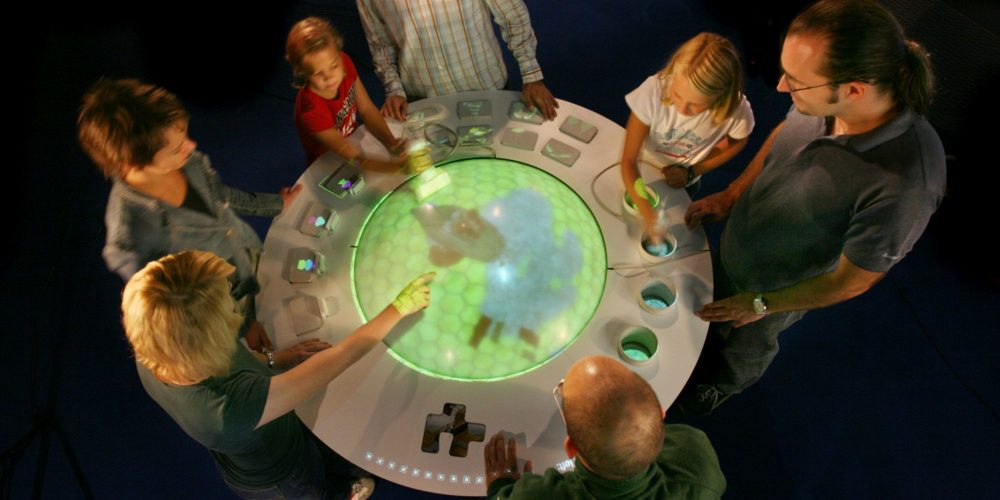
Throwback: Gulliver’s World
Gulliver’s World, the further development of Gulliver’s Box, was a multi-user mixed reality system developed by the Ars Electronica Futurelab.
-
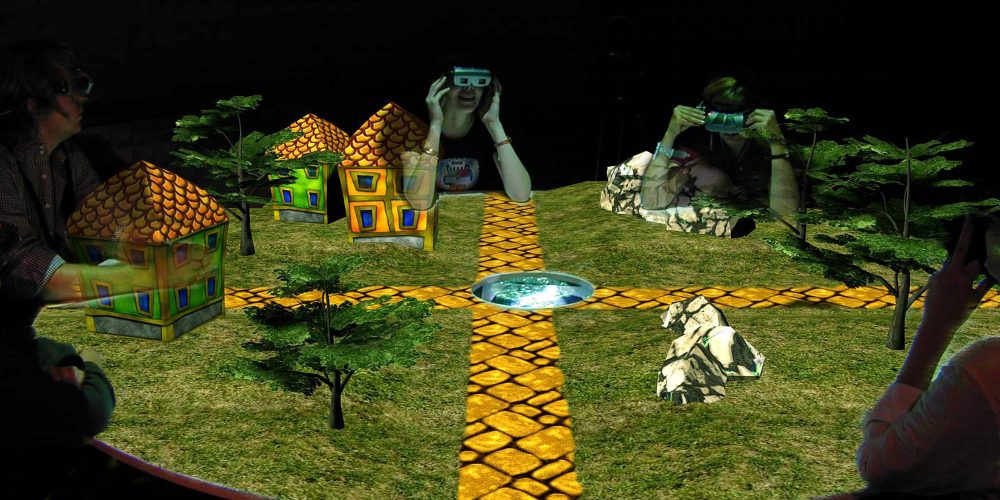
Thowback: Gulliver’s Box
In Gulliver’s Box, the process of creative design, display and perception were brought together in a single environment.
-
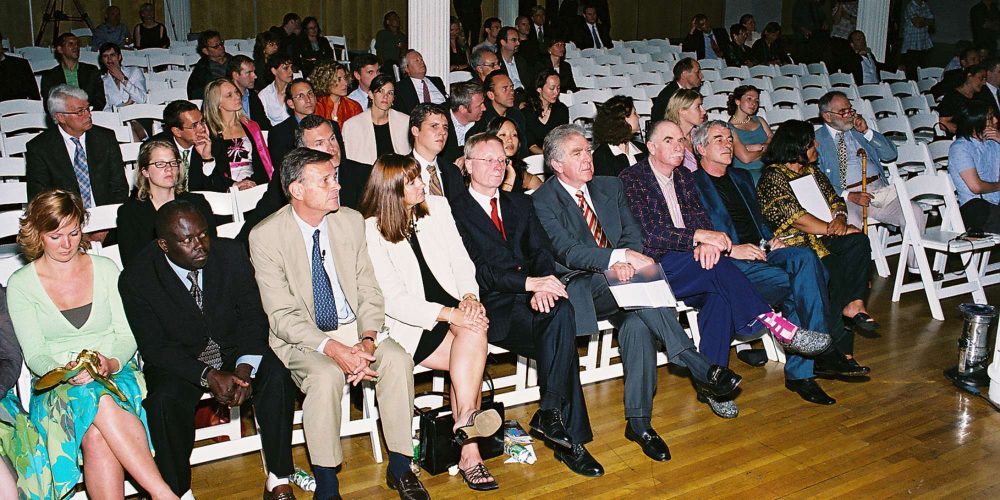
Throwback: Ars Electronica goes international
On the occasion of its 25th anniversary in 2004, the time seemed ripe for Ars Electronica to finally go global.
-
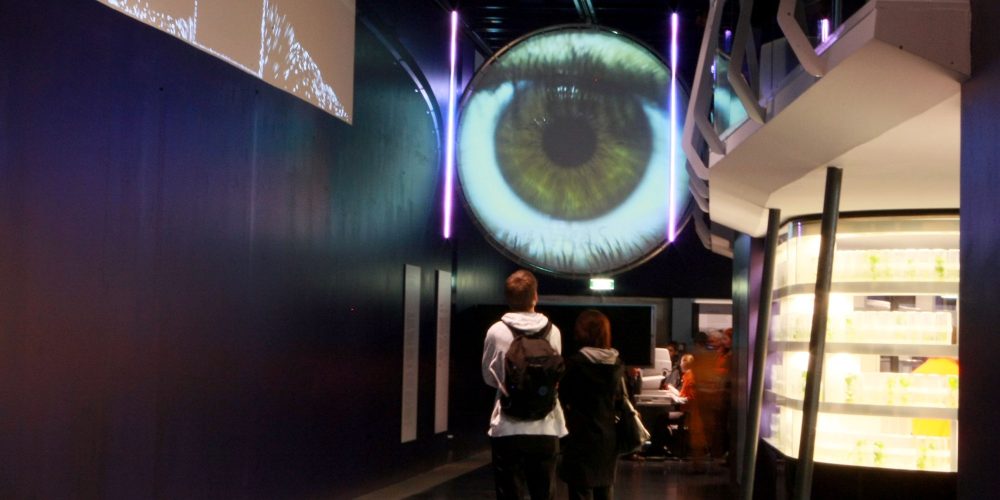
Throwback: The first Ars Electronica Labs
The new Ars Electronica Center in 2009 had not only gained more exhibition space and urban visibility, but had also used the opportunity to completely reinvent itself.
-
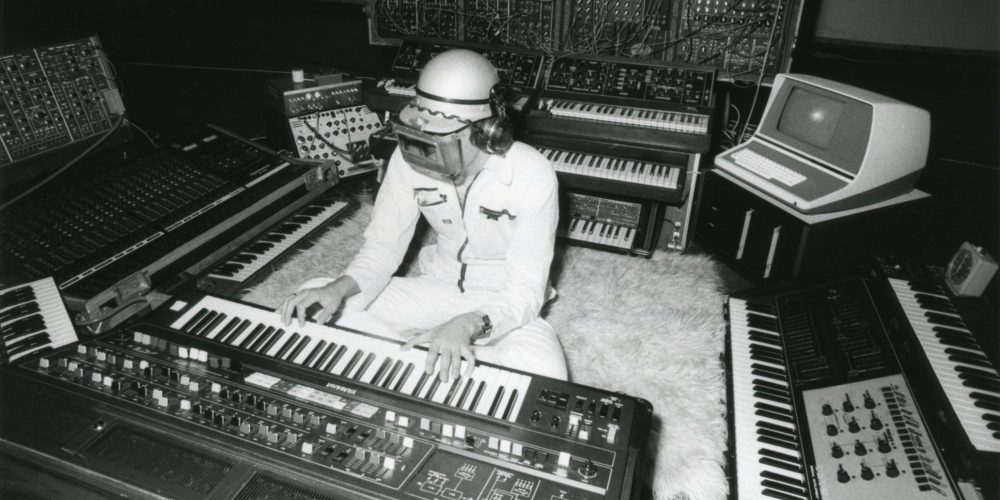
Throwback: Linz Steel Symphony
In 1980, electronic music pioneer Klaus Schulze opened the Ars Electronica Festival with a concert of live recorded sounds from the Linz steelworks voestalpine.
-
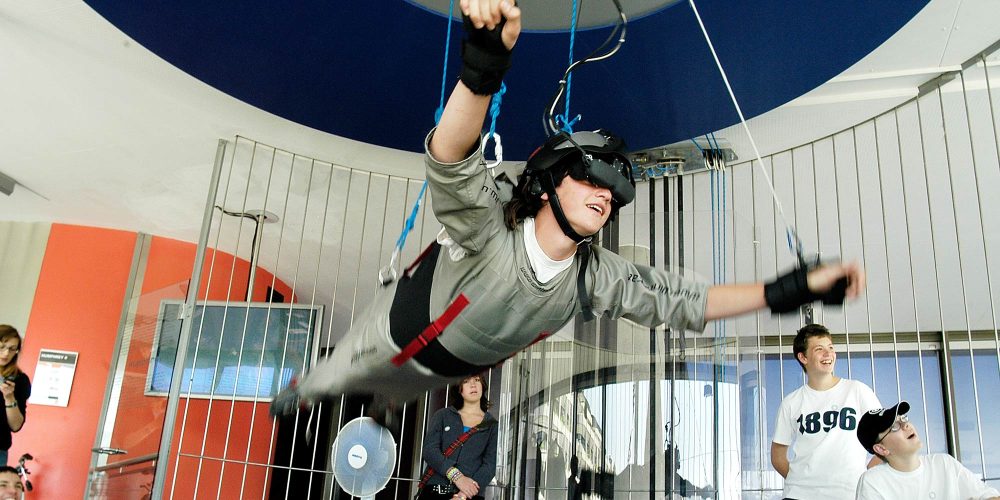
Throwback: Humphrey the flight simulator
Howering just a few meters above the lobby of the Ars Electronica Center, an installation called Humphrey promised a very special kind of experience which was connceted to a deeply human desire.
-
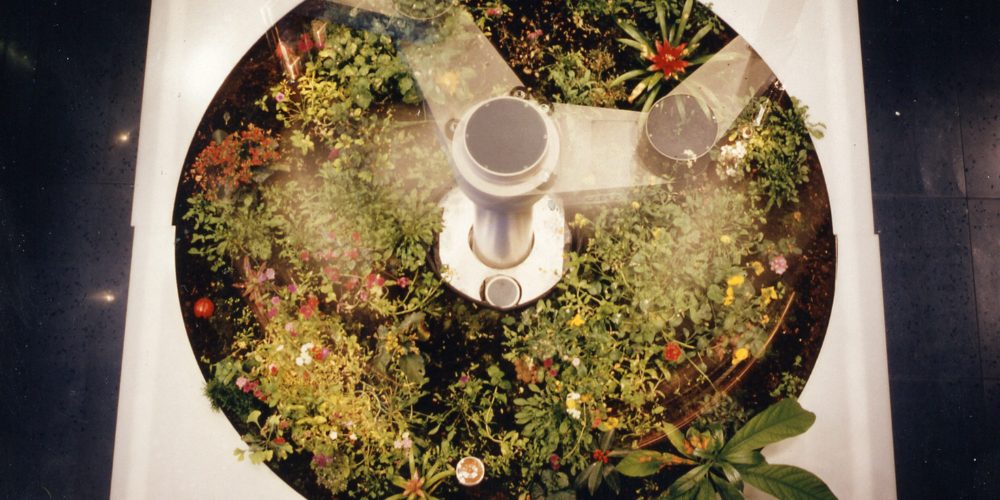
Throwback: Telegarden
The Telegarden was an art installation that allowed web users to plant, water, and monitor the progress of seedlings in a garden from a distance.
-
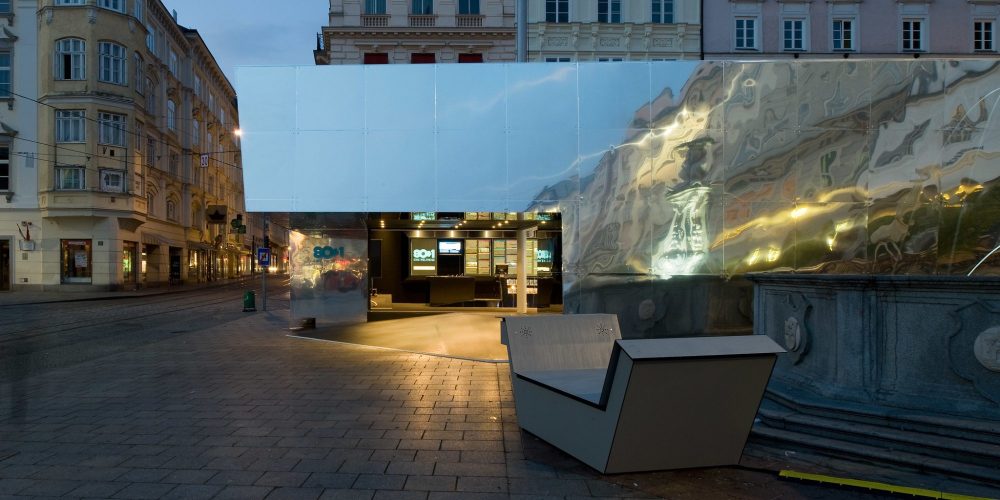
Throwback: A journey around the world in 80+1 days
On the occasion of the news about the passing of Linz09 artistic director Martin Heller, we travel back to the Capital of Culture year 2009 and take a look at the project “80+1 – A Journey around the World”.
-
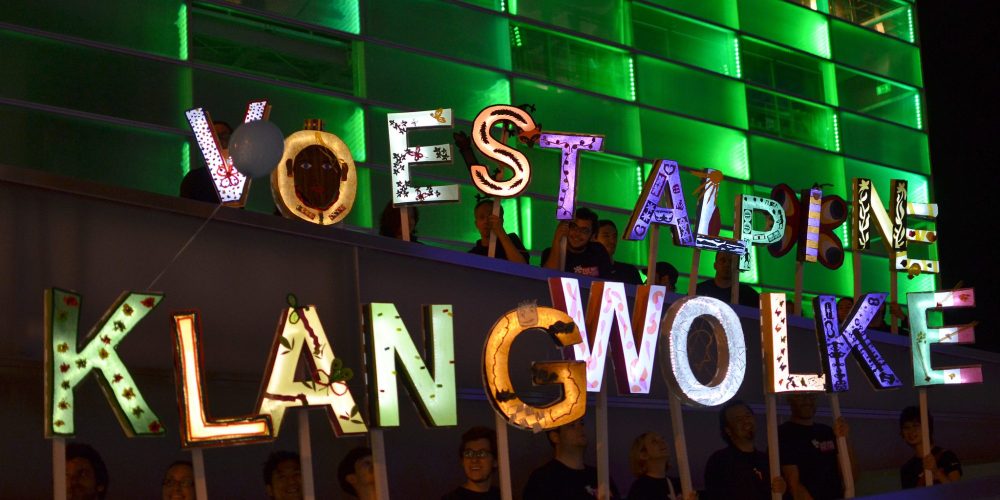
Throwback: The Cloud in the Web
33 years after the very first Linzer Klangwolke in 1979, which marked the beginning of the Ars Electronica Festival, Ars Electronica got the chance to create the 2012 Klangwolke.
-
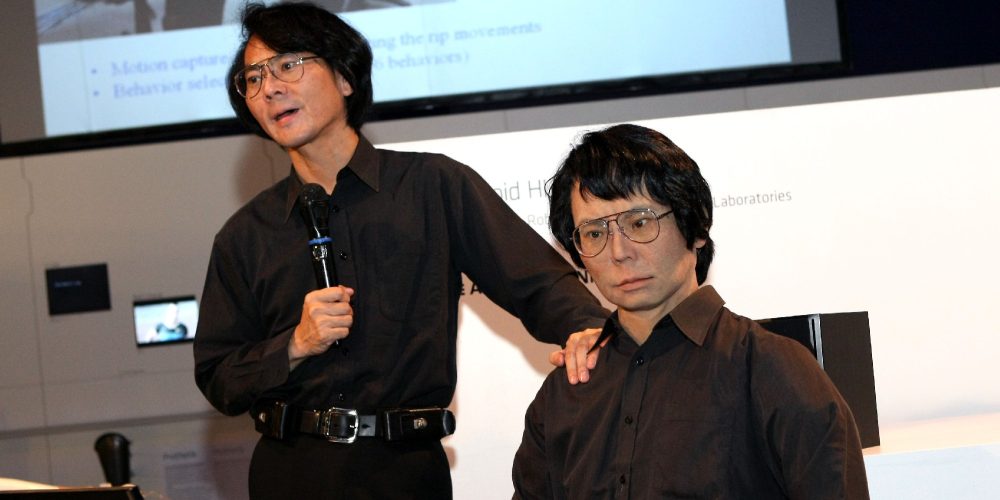
Throwback: Robots and Androids are among us
In 2009 and 2010, the Ars Electronica Center had special visitors of a somewhat different kind.
-
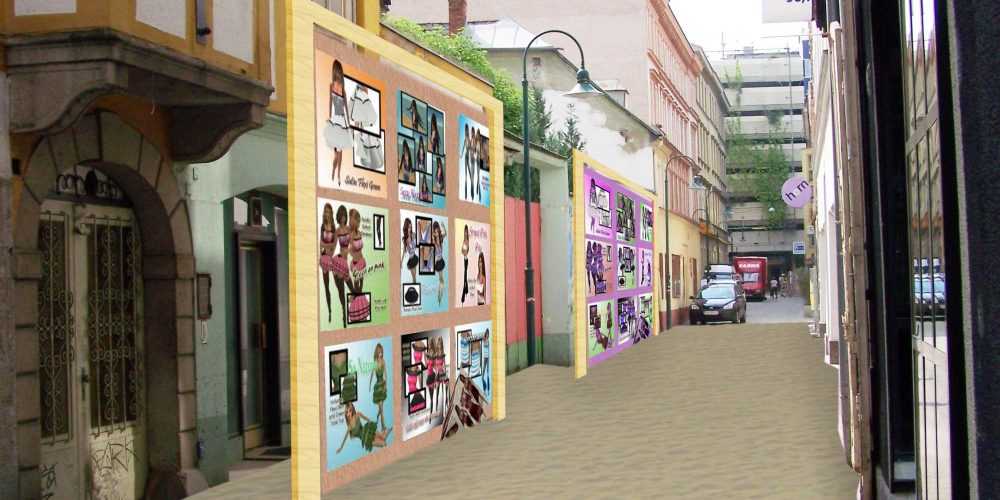
Throwback: Second City
In 2007, during the Ars Electronica Festival, Marienstaße in Linz became a transition zone into virtuality for one week.
-
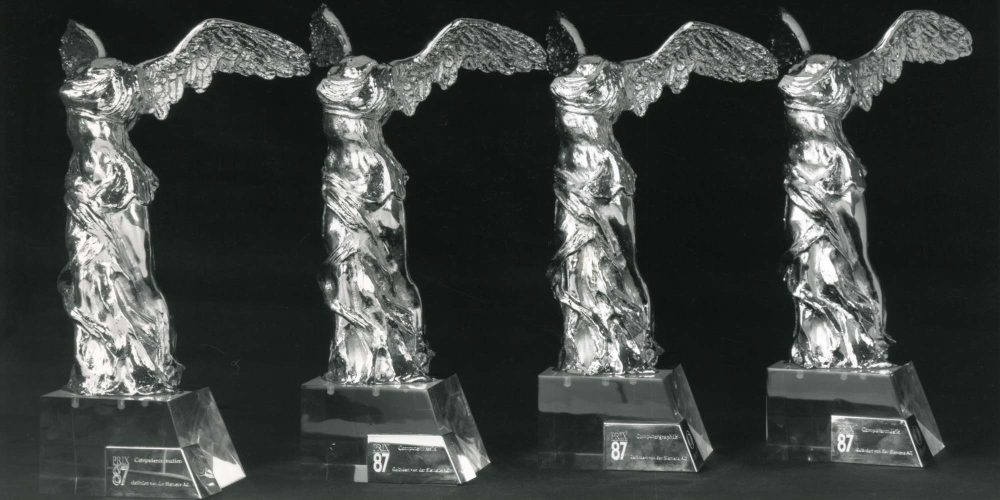
Throwback: Goddess on new paths
What does a Greek goddess of victory have in common with the Prix Ars Electronica? More than you might think!
-
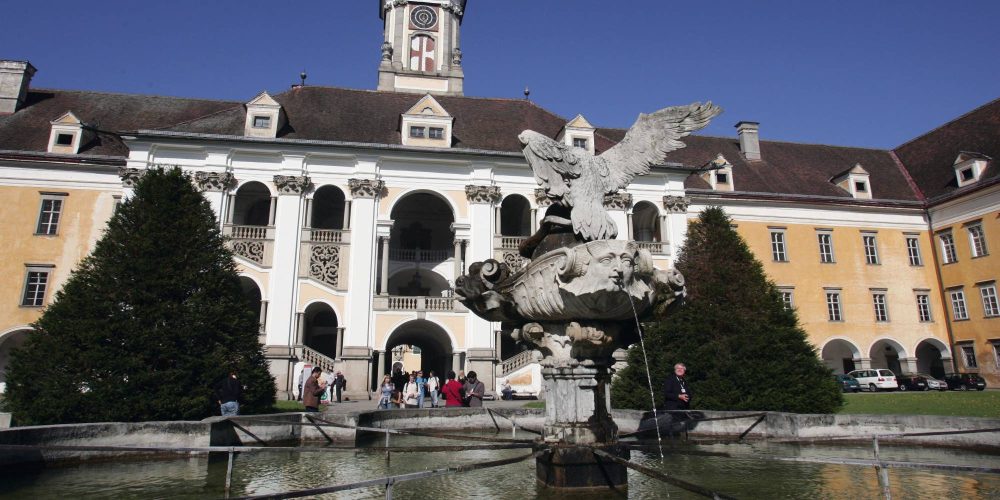
Throwback: Going to the Country
In 2006, the Ars Electronica Festival moved for the first time to the baroque St. Florian Monastery of the Canons Regular of St. Augustine.
-
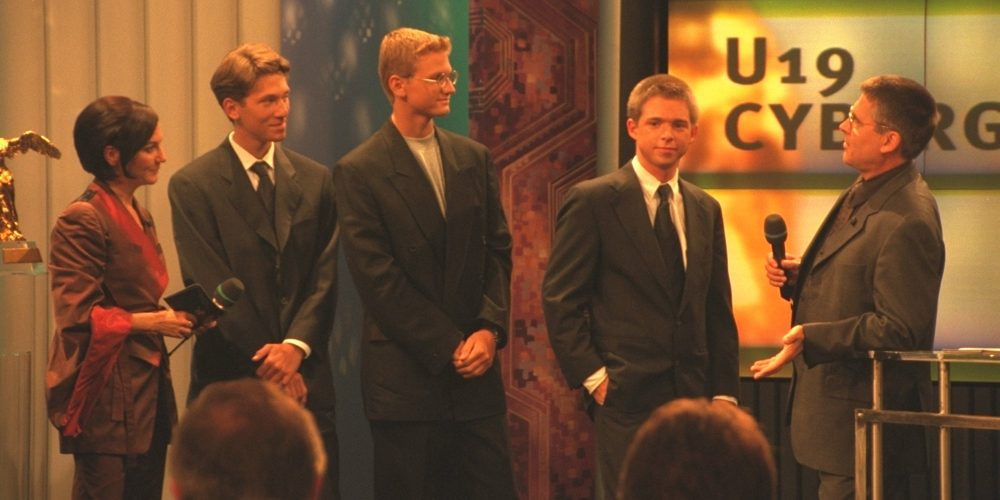
Throwback: The new generation
In 1998 a new category was introduced at the Prix Ars Electronica – “Cybergeneration U19”.
-
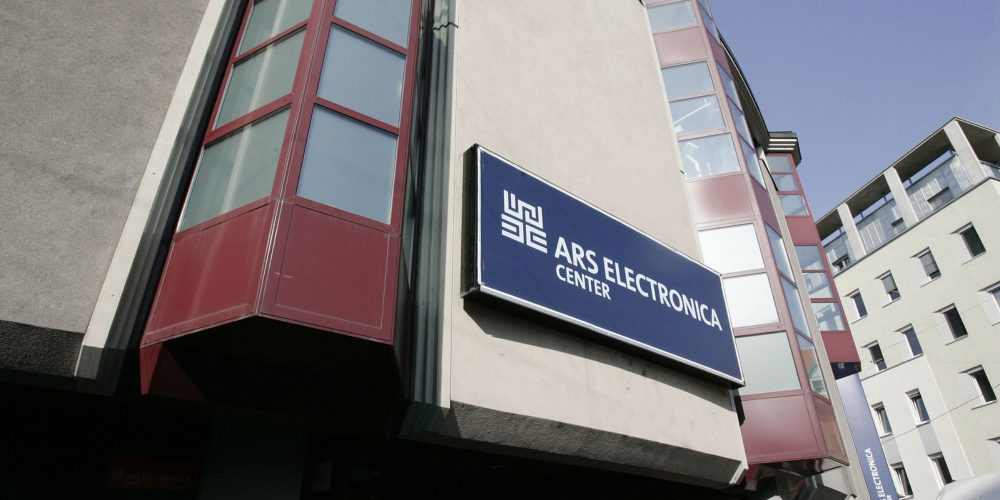
Throwback: The temporary museum
While the new Ars Electronica Center was built on the northern bank of the Danube, the museum made a guest appearance in downtown Linz until the end of 2008.
-
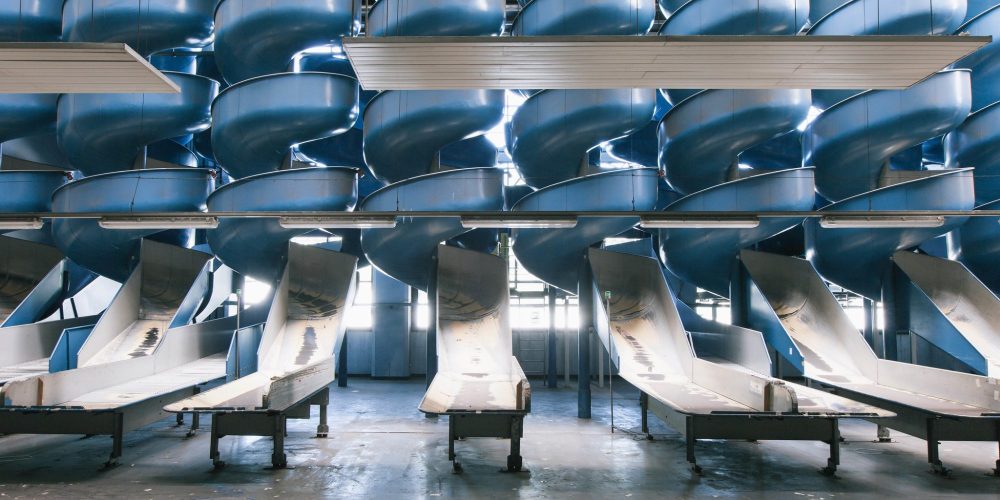
Throwback: In Search of a new Festival location – The POSTCITY
With the Ars Electronica Festival 2021 at Johannes Kepler University being around the corner, let’s take a look back at the location that re-invented the Festival as a platform – the POSTCITY.
-
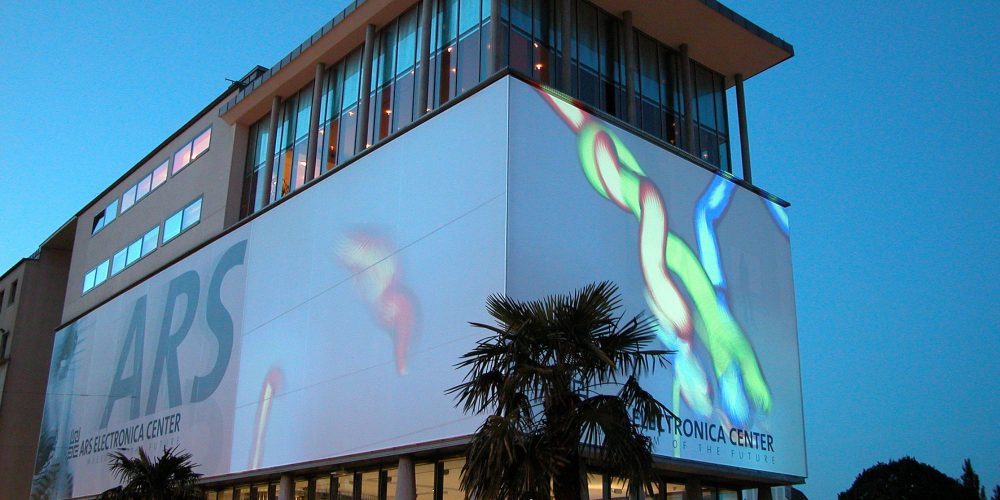
Throwback: The Museum of the Future
1996 was a major turning point for Ars Electronica as an institution. For around four years a background process had been underway to fundamentally change Ars Electronica: the creation of the Ars Electronica Center.
-
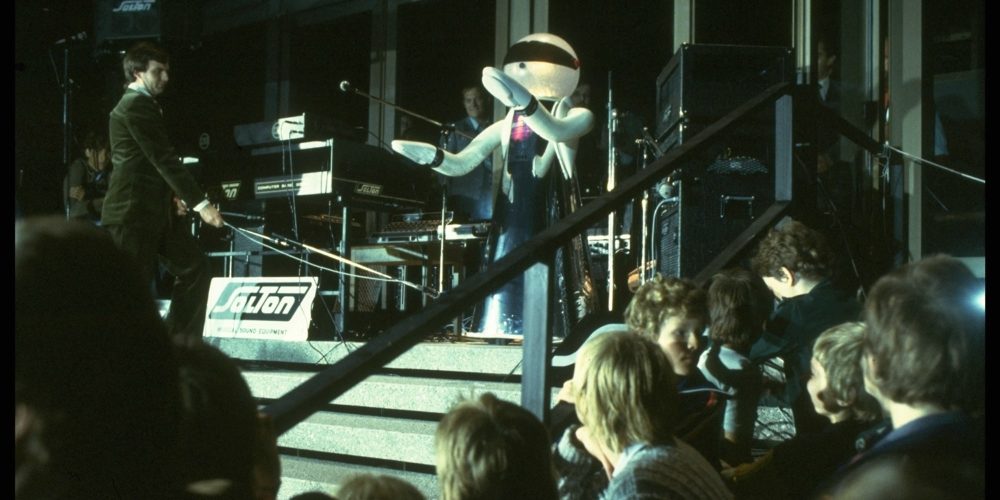
Throwback: The first Ars Electronica Festival
On September 18, 1979, the very first Ars Electronica Festival saw the light of day and laid the foundation for the Ars Electronica success story.
-
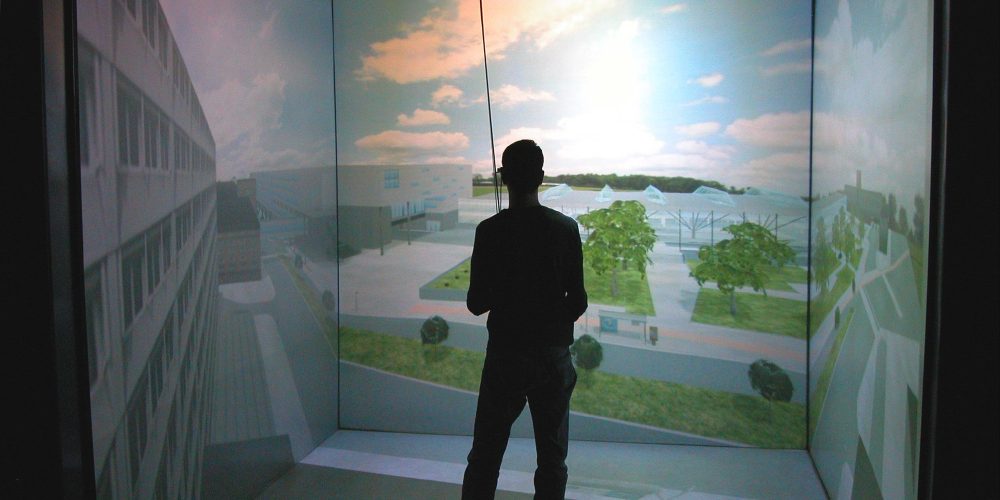
Throwback: The CAVE
In 1996, the CAVE, a room in which you can fly through the air, was created in the recently opened Ars Electronica Center.
-
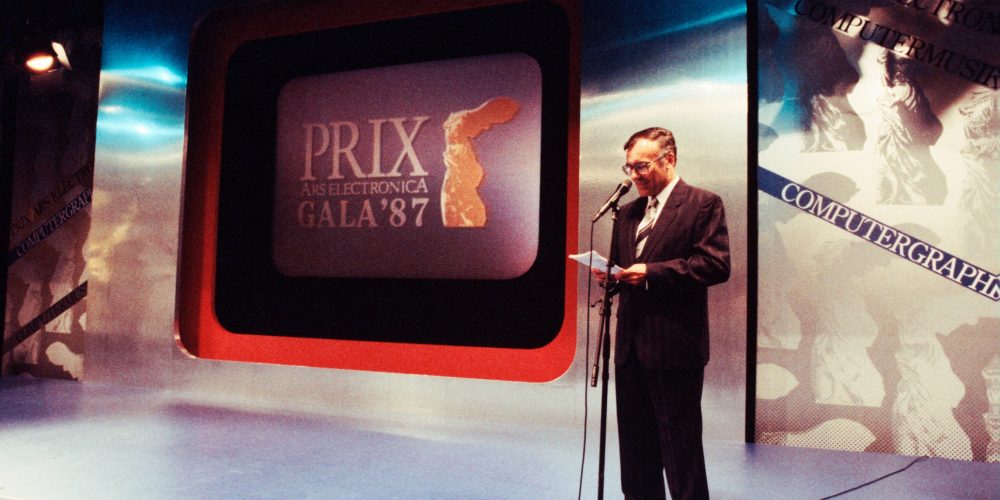
Throwback: The first Prix Gala
In 1987, the Prix Ars Electronica was announced for the first time.
-
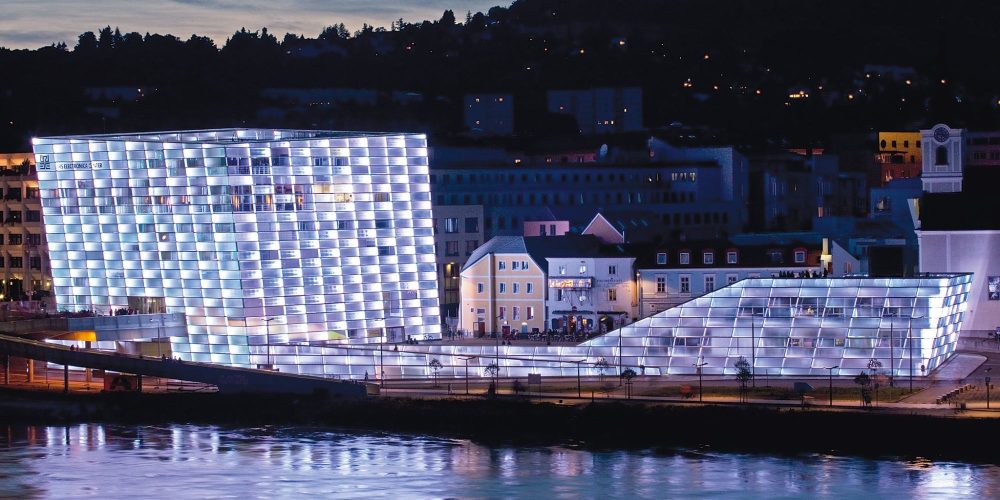
Throwback: The new Ars Electronica Center
On the occasion of the Capital of Culture Year 2009, the Ars Electronica Center was remodeled and expanded.
